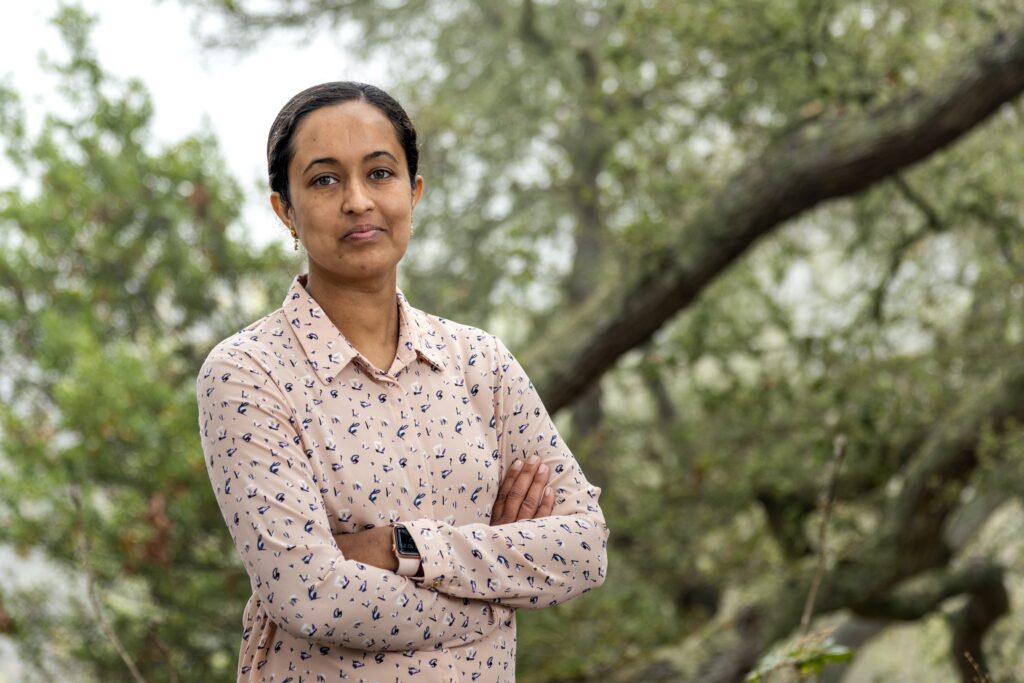
Shwetha Acharya is a postdoctoral scholar affiliated with the Chakraborty Lab in the Department of Ecology, Earth and Environmental Sciences Area at Lawrence Berkeley National Laboratory.
What microbiome-related work do you do?
As a part of mCAFEs SFA, which explores plant-microbe interaction, I am involved in isolating environmental microbes and constructing synthetic communities representative of the rhizosphere. We hope that by constructing simpler, yet relevant rhizosphere communities, we will be able to understand and predict plant-microbe interactions with greater accuracy. We closely work with the genome editing and modeling teams to design experiments to test various predictions using synthetic communities. In addition, our lab focuses on difficult-to-culture microbes, uncovering their role in the environment by characterizing their genomic and phenotypic features and their interactions with other microbes. I use a variety of omics and cultivation-based approaches to aid my work.
What have you gained from the initiative so far?
Having attended both virtual events during the pandemic and in-person events recently, I am convinced that JBIMS is a great initiative to bring together microbiome researchers working in different environmental niches. It provides a great platform form to learn and discuss important challenges and solutions to advance microbiome science. As an early career scientist, I am fortunate to have presented my work at a JBIMS symposium, networked with other researchers, and enjoyed learning from other brilliant scientists. The career panel at one of the JBIMS symposiums was an eye-opener in terms of wide variety of scientific career paths one can pursue.